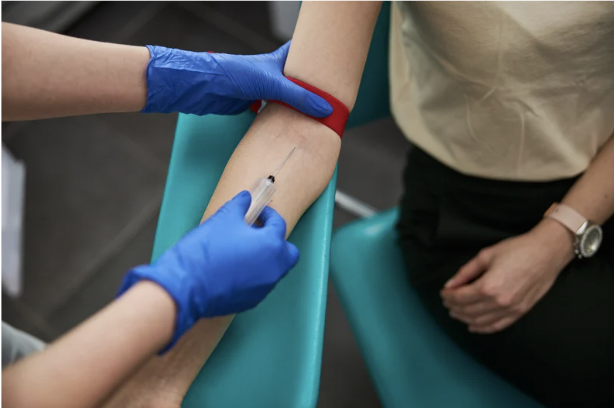Calories On Menus Will Only Fuel Diet Culture And Eating Disorders
Trigger warning: eating disorders.
There was once a time where I couldn’t pass an apple without saying the number of calories it contained in my head. In fact, this incessant habit spanned most foods, from a can of full-fat coke to a roast chicken, and everything in-between. A large chunk of my brain power was taken up daily by a running total of everything that did, and didn’t, pass my lips.
It’s taken me almost 10 years to override this routine. To be able to listen to a podcast while making breakfast (I used to need silence in order to tot up calorie count) or to try a new recipe without wondering what its nutritional value was. It has been – as it has for many others – a long, long road, but one that has left me less of a slave to that little number on the back of a box or packet. I had come to the point where I had accepted that, while I might never be totally free of it at all times, it didn’t need to plague my every waking moment.
But as of today (1st April), it becomes a legal requirement in the UK for pubs, restaurants and cafes in England with more than 250 employees to calorie label their menus. It is an attempt to force eateries to make healthier, lower calorie meals, and according to a new study, it works. But not without collateral damage though. It is myself, and the 1.25 million others who have or have had an eating disorder or disordered eating tendencies, who will suffer most.
“While it’s very important not to demonise the scheme (many with Diabetes, for example, will likely welcome the transparency of their calorie content), as a professional in eating disorders, this feels like fighting fire with fire,” says Ruth Micallef, a Sub-Specialised Eating Disorders Counsellor. “To fully understand why this is so detrimental, we first need to acknowledge that eating disorders (including those which can promote weight gain like binge eating disorder and bulimia nervosa), are not simply a ‘personal defect’; they are a way of coping with very real unprocessed traumas. That is why the bedrock of recovery has nothing to do with calories, and everything to do with having a safe space to process and move forward from trauma.”
“Reducing our obesity crisis in the UK to simply calories on a menu minimises the reality of eating disorders,” Ruth continues. “It assumes that people are simply lazy, greedy, and unmotivated, building on harmful stereotypes which prevent people from getting the support they truly need because of feelings of shame. Those who overeat in their eating disorder will be further shamed and blamed for their trauma, and those who restrict will be further encouraged to utilise their harmful coping mode.”
For Ruth, and other experts like her, there is a bigger question here: where is the real support for the trauma behind all eating disorders? Where is the real education on nutrition and diet? “We see calories on menus, yet mental health services funding completely demolished both in the public and charity sectors,” Ruth says.
“The reality is that toxic diet culture can also instigate feelings of shame and self-blame in those who don’t have a current eating disorder too. By encouraging people to live by numbers on a menu, rather than intuitively, we inevitably will encourage more people into disordered eating,” she explains.





